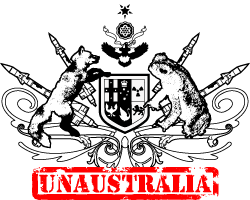
So the annual Cultural Studies Association of Australasia Conference is coming soon in December. The theme is Unaustralia, and I managed to do a bit of a procrustean feat on one of my old research streams that I have been looking to publish. Basically, its going to be an update of the final chapter of my honors thesis, with current literature (its amazing how much stuff has come out on strategy games - and how much my research skills have improved), and refocused on Europa Universalis (Paradox Interactive, 2000) and Victoria: Empire Under the Sun (Paradox Interactice, 2002). The dissertation version used Civilization III and Medieval: Total War, both of which are getting a bit long in the tooth, and also importantly don't explicitly reference the Australian colonial period. In EU2 Australia is unclaimed by any European power, and its colonization can take place during the game, in Vicky South and East Australia are Bristish colonies but anything can happen, I've played games where the Netherlands colonized North and West Australia, and one where Britian traded Australia to Brazil for the Phillipines. Here is the abstract that got accepted:
Virtual Unaustralia: Videogames and Australia’s Colonial History
In this paper I will discuss the representations of Australia in the videogames Europa Universalis II and Victoria: Empire Under the Sun. The first game deals with the historical period of 1400-1820, the second from 1838 to 1920. In both games Australia is portrayed as an empty space on these games’ map, which may during the course of play, be revealed and colonized. Many scholars over the past few years have made a point of arguing these games involve players uncritically accepting and applying the logic of colonialism. However, an examination of the community forums of these games reveals what I believe is a more complex picture of the players’ engagement with the representations of colonialism within the games. Drawing on these sources, and on textual analysis of the games I will argue that these games reflect the colonial ideology by exploiting the potentiality of the empty map which portrays Australia as a virtual non-space waiting to be actualized. Following from this, despite a dominant logic of colonialism an examination of players’ reports of their games reveals that this non-space may be actualized in multiple ways, leading to trajectories of history being actualized within the game that radically diverge from traditional representations of the past. Finally, that by opening up the notion of Australia to a multiplicity these games confronts the players with alternatives to the reality of the colonial moment, which can be considered more or less ethical than what actually occurred.
This has to be finnished by the end of the month, so I am starting my write up of the new draft featuring the Paradox Interactive games today.

No comments:
Post a Comment